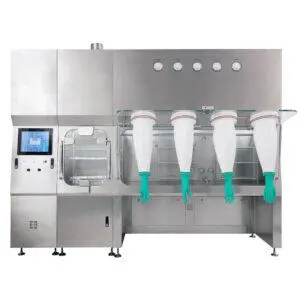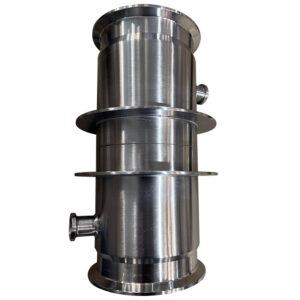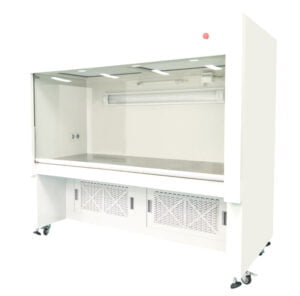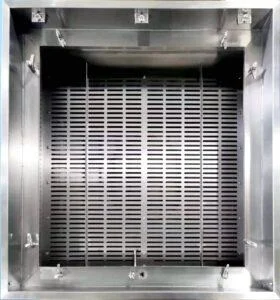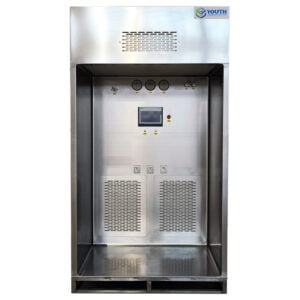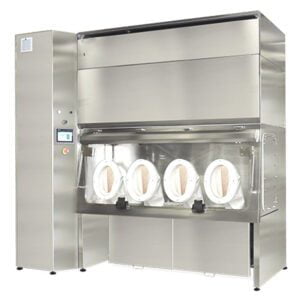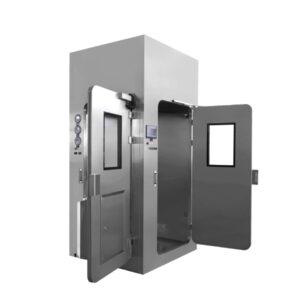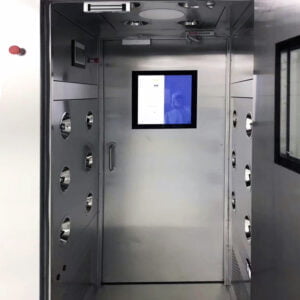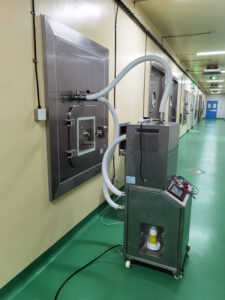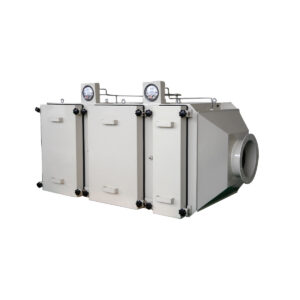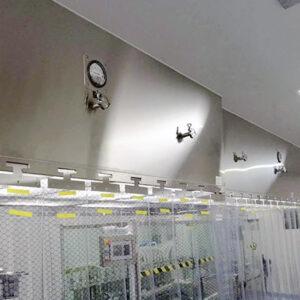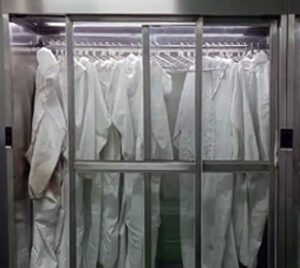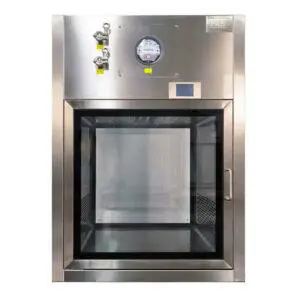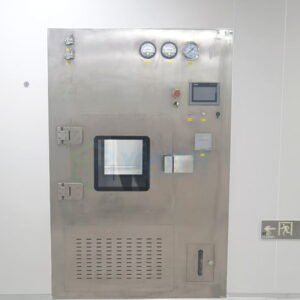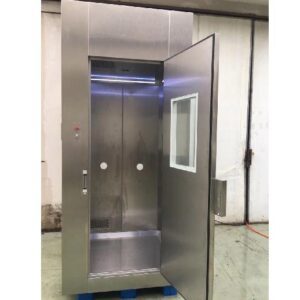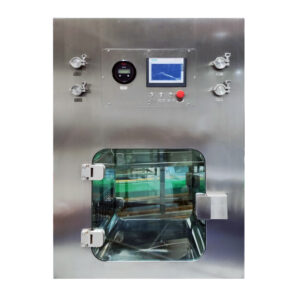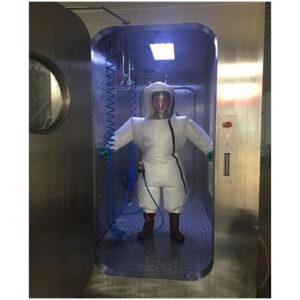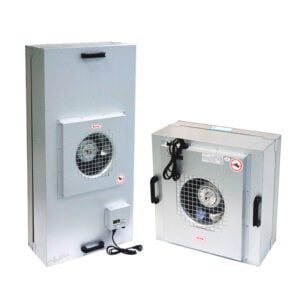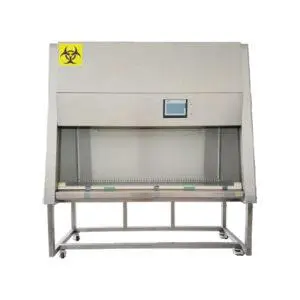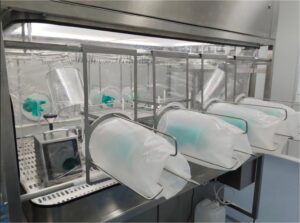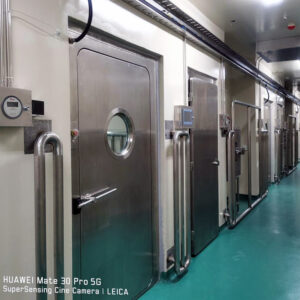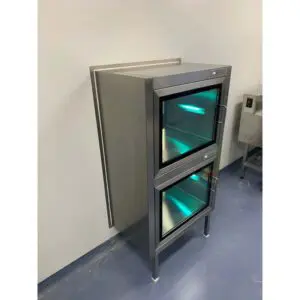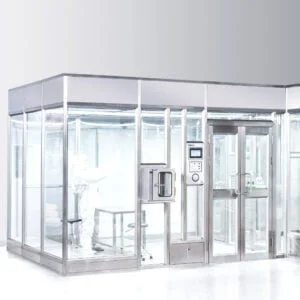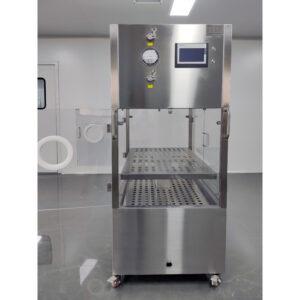Air pollution control has become a critical concern in various industries, from pharmaceuticals to manufacturing. As the need for cleaner air and safer working environments grows, innovative technologies are emerging to meet these challenges. One such groundbreaking solution is BIBO technology, which stands for "Bag In Bag Out." This advanced system is transforming the landscape of air filtration and contamination control, offering unparalleled safety and efficiency in managing hazardous airborne particles.
BIBO technology represents a significant leap forward in air pollution control systems. It provides a secure method for replacing contaminated filters without exposing personnel or the environment to harmful substances. This innovative approach ensures continuous protection against airborne contaminants, making it an indispensable tool in industries where air quality is paramount. From cleanrooms to nuclear facilities, BIBO systems are setting new standards for safety and performance in air filtration.
As we delve deeper into the world of BIBO technology, we'll explore its mechanics, applications, and the substantial impact it's having on air pollution control. We'll examine how this system is revolutionizing safety protocols, enhancing operational efficiency, and contributing to cleaner, healthier environments across various sectors. Join us on this journey to understand why BIBO is becoming the gold standard in advanced air filtration systems.
"BIBO technology is a game-changer in air pollution control, offering unmatched safety and efficiency in managing hazardous airborne contaminants. Its innovative design allows for the safe replacement of contaminated filters without compromising the integrity of controlled environments."
The Mechanics of BIBO Technology
| Feature | Description | Benefit |
|---|---|---|
| Containment System | Sealed bag mechanism | Prevents exposure to contaminants |
| Filter Design | High-efficiency particulate air (HEPA) filters | Captures 99.97% of particles ≥0.3 microns |
| Change-out Process | Safe, no-contact filter replacement | Minimizes risk to personnel |
| Material | Durable, chemical-resistant materials | Ensures long-term reliability |
| Compatibility | Adaptable to various air handling systems | Versatile application across industries |
How does BIBO technology work?
BIBO technology operates on a simple yet ingenious principle: it allows for the safe removal and replacement of contaminated filters without breaking the containment barrier. This is achieved through a specialized housing that incorporates a bag system for filter change-out.
The BIBO system consists of a housing unit that contains the filter, a containment bag, and a secure access door. When it's time to replace a filter, the operator opens the access door and pulls the containment bag over the filter. The contaminated filter is then safely removed and sealed within the bag, preventing any release of hazardous particles.
"The BIBO system's unique design ensures zero leakage during filter change-outs, maintaining the integrity of controlled environments and protecting both personnel and the surrounding area from potential contamination."
| Component | Function |
|---|---|
| Housing Unit | Contains and secures the filter |
| Containment Bag | Enables safe removal of contaminated filters |
| Access Door | Provides secure entry for filter change-out |
Why is BIBO technology crucial for air pollution control?
BIBO technology plays a vital role in air pollution control by addressing one of the most critical challenges in maintaining clean air environments: the safe replacement of contaminated filters. Traditional filter change-out methods often pose risks of exposure to harmful particles, but BIBO eliminates this concern.
In industries where air quality is paramount, such as pharmaceuticals, biotechnology, and nuclear facilities, even minor contamination can have severe consequences. BIBO systems ensure that the integrity of controlled environments is never compromised during filter replacements.
"BIBO technology is essential for maintaining the highest standards of air quality in critical environments. It enables facilities to uphold stringent cleanliness requirements while prioritizing the safety of personnel and the surrounding environment."
| Industry | BIBO Application |
|---|---|
| Pharmaceuticals | Cleanroom maintenance |
| Biotechnology | Containment of biohazards |
| Nuclear Facilities | Radioactive particle control |
| Aerospace | Precision manufacturing environments |
What are the key benefits of implementing BIBO systems?
Implementing BIBO systems in air pollution control offers numerous advantages that extend beyond basic filtration. These benefits encompass safety, efficiency, and regulatory compliance, making BIBO an attractive solution for a wide range of industries.
One of the primary benefits is the enhanced safety for personnel. By eliminating direct contact with contaminated filters, BIBO systems significantly reduce the risk of exposure to harmful substances. This not only protects workers' health but also minimizes the potential for workplace accidents and liabilities.
Efficiency is another crucial advantage of BIBO technology. The streamlined filter change-out process reduces downtime and increases operational productivity. Facilities can maintain their air quality standards without lengthy interruptions to their processes.
"BIBO systems offer a trifecta of benefits: enhanced safety for personnel, improved operational efficiency, and assured compliance with stringent air quality regulations. This comprehensive approach to air pollution control makes BIBO an invaluable asset in modern industrial settings."
| Benefit | Description |
|---|---|
| Safety | Minimizes exposure to contaminants |
| Efficiency | Reduces downtime during filter changes |
| Compliance | Meets strict regulatory standards |
| Cost-effectiveness | Lowers long-term operational costs |
How does BIBO technology compare to traditional filtration methods?
When compared to traditional filtration methods, BIBO technology stands out for its superior safety features and operational efficiency. Conventional filter change-out procedures often require shutting down entire systems and exposing workers to potential contaminants. In contrast, BIBO allows for filter replacements without system interruption or exposure risks.
Traditional methods may also lead to the release of captured particles during filter changes, compromising the cleanliness of the environment. BIBO's containment system ensures that all contaminants remain sealed within the bag, maintaining the integrity of the controlled area.
"BIBO technology represents a significant advancement over traditional filtration methods, offering a level of safety and efficiency that was previously unattainable. Its ability to maintain containment during filter changes sets a new standard in air pollution control."
| Aspect | Traditional Methods | BIBO Technology |
|---|---|---|
| Safety | Potential exposure risks | Minimal exposure risk |
| Efficiency | System shutdown required | Continuous operation |
| Containment | Possible particle release | Sealed containment |
| Compliance | May not meet strict standards | Exceeds regulatory requirements |
What industries benefit most from BIBO technology?
BIBO technology finds applications across a wide spectrum of industries where air quality and contamination control are critical. The [ (YOUTH)[youthfilter.com] ] BIBO systems, available at [ https://youthfilter.com/cleanroom-equipment/biosafety-purification-equipment/bag-in-bag-out-bibo/ ], are particularly beneficial in several key sectors.
The pharmaceutical industry is a prime beneficiary of BIBO technology. In drug manufacturing facilities, maintaining sterile conditions is paramount. BIBO systems ensure that airborne contaminants are effectively filtered and safely removed without compromising the clean environment.
Biotechnology and research laboratories also rely heavily on BIBO systems. When dealing with potentially hazardous biological agents, the containment provided by BIBO technology is essential for preventing cross-contamination and protecting researchers.
"From pharmaceuticals to nuclear facilities, BIBO technology is revolutionizing air pollution control across industries where air quality is mission-critical. Its versatility and effectiveness make it an indispensable tool in maintaining safe, clean environments."
| Industry | BIBO Application |
|---|---|
| Pharmaceutical | Sterile manufacturing areas |
| Biotechnology | Hazardous material containment |
| Nuclear | Radioactive particle filtration |
| Aerospace | Precision assembly environments |
| Healthcare | Isolation rooms and operating theaters |
What are the future trends in BIBO technology for air pollution control?
As air quality concerns continue to grow globally, BIBO technology is poised for further innovation and expansion. Future trends in BIBO systems are likely to focus on increased automation, smart monitoring capabilities, and enhanced energy efficiency.
One emerging trend is the integration of IoT (Internet of Things) technology with BIBO systems. This could allow for real-time monitoring of filter performance, predictive maintenance, and remote operation of filter change-outs. Such advancements would further improve the efficiency and safety of air pollution control systems.
Another area of development is the use of advanced materials in BIBO filters and containment bags. Research is ongoing to create filters with higher capture rates for ultra-fine particles and improved resistance to chemical degradation.
"The future of BIBO technology in air pollution control is bright, with trends pointing towards smarter, more efficient systems. From IoT integration to advanced materials, these innovations promise to elevate BIBO's role in maintaining clean air across industries."
| Future Trend | Potential Impact |
|---|---|
| IoT Integration | Real-time monitoring and predictive maintenance |
| Advanced Materials | Higher filtration efficiency and durability |
| Automation | Reduced human intervention and increased safety |
| Energy Efficiency | Lower operational costs and environmental impact |
Conclusion
BIBO technology has emerged as a cornerstone in modern air pollution control systems, offering unparalleled safety, efficiency, and reliability. Its innovative approach to filter change-outs has set new standards in contamination control, making it an indispensable tool across various industries where air quality is paramount.
From pharmaceuticals to nuclear facilities, BIBO systems have demonstrated their versatility and effectiveness in maintaining clean, safe environments. The technology's ability to ensure containment during filter replacements not only protects personnel but also upholds the strictest regulatory standards in air quality management.
As we look to the future, BIBO technology is poised for further advancements. The integration of smart technologies, the development of more efficient materials, and the push towards greater automation all point to an exciting evolution in air pollution control systems.
In an era where clean air is increasingly recognized as a critical factor in public health and industrial processes, BIBO technology stands as a beacon of innovation. Its continued development and widespread adoption will play a crucial role in creating safer, cleaner environments for generations to come.
External Resources
BIBO | MayAir Group – This page describes the BIBO technology integrated with air discharge systems to prevent leakage of harmful contaminants. It highlights features such as modular assembly, zero leakage valves, and high precision welding.
BIBO bag in bag out filtration device – This resource details the UltraBIBO device, which uses a closed bag-in bag-out system to isolate and filter harmful substances like radgas, pathogens, and toxic chemicals.
Maintaining Purity: BIBO's Critical Role in Cleanrooms – This article explains how BIBO technology ensures cleanroom integrity by allowing the safe replacement of contaminated filters without breaking the containment barrier, highlighting its importance in industries like pharmaceuticals and aerospace.
Bag In Bag Out – BIBO – YOUTH Clean Tech – This page describes the BIBO method for safely replacing contaminated HEPA filters, ensuring that personnel and the environment are not exposed to captured contaminants.
BIBO Bag-In Bag-Out Filtration Systems – This resource from Camfil provides detailed information on how BIBO systems are used in air pollution control to maintain high levels of air cleanliness and safety.
Cleanroom Technology: BIBO Systems – This article from Cleanroom Technology discusses the implementation, benefits, and maintenance of BIBO systems in controlled environments, emphasizing their role in air pollution control and contamination prevention.
Related Contents:
- Bag-In/Bag-Out (BIBO) Systems: Operation and Maintenance Guide
- Unveiling the Power of Bag-In-Bag-Out Systems
- Evaluating BIBO Systems’ Efficiency in Particle Removal
- The Intricate World of BIBO Filter Housing
- BIBO Systems: Advancing HEPA Filtration Safety and Efficiency
- Safeguarding Sterility: BIBO Systems in Cross-Contamination Prevention
- Safeguarding Air Quality: The Power of BIBO Systems
- Environmental Impact of BIBO Systems in Industrial Filtration
- The Cost-Effectiveness of BIBO Systems in Industrial Applications


